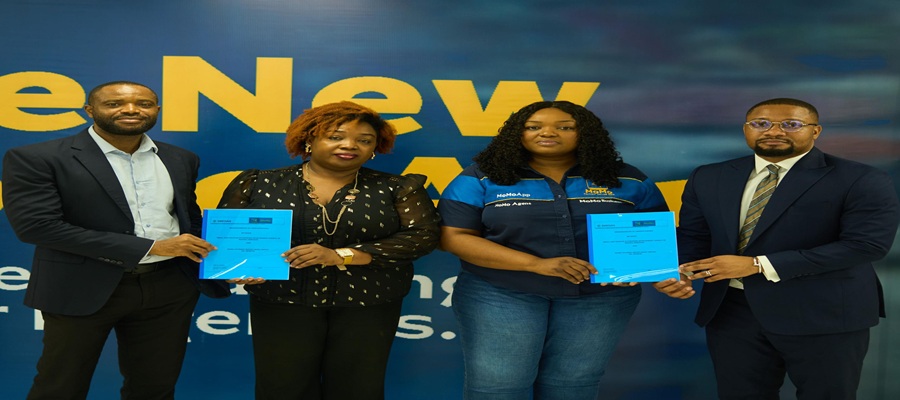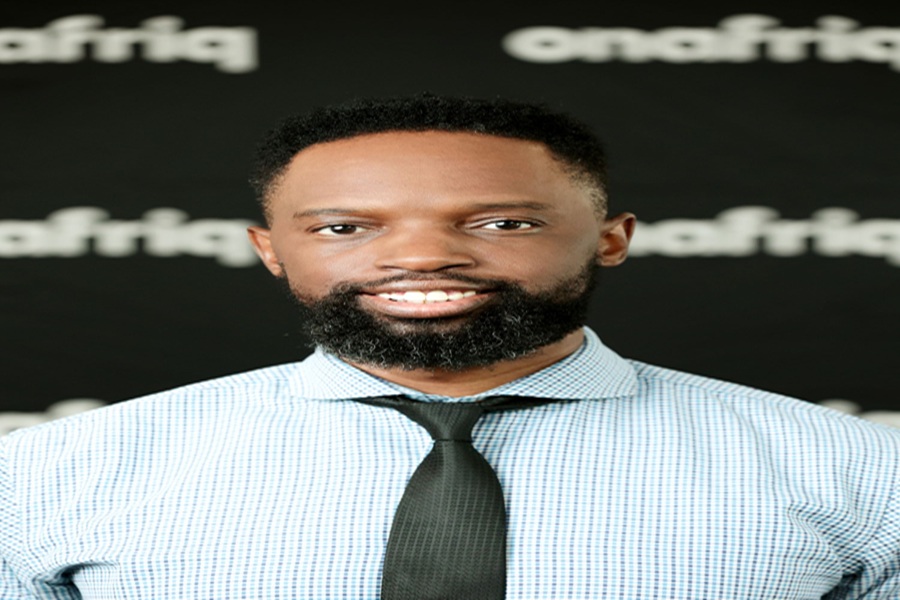Telecom
Nigerians Pay for Calls That Did Not Connect- Lawan

Ahmad Lawan, Senate President, has charged telecommunications service providers in the country to improve their services or leave the country, saying it is wrong for Nigerians to be made to pay for calls which did not connect.

He said that the National Assembly would henceforth be tough on the Nigerian Communications Commission (NCC) to ensure that they carry out their regulatory functions effectively.
Lawan spoke while declaring open a one-day joint public hearing on the incidence of drop calls in the country.
The public hearing, tagged: “The increasing rate of drop calls and other unwholesome practices by Telecommunications Network Operators in Nigeria that have robbed Nigerians of their hard earned billions of Naira” was organized by the Senate Committees on Communication and Trade and Investment, chaired by Senator Oluremi Tinubu (Lagos Central).
The Senate President said that it is wrong for Nigerians to be made to pay for calls which did not connect.
He lamented that all service providers are complicit in the rising cases of drop calls in the country for which they charge Nigerians.
Lawan said: “Whoever will provide better services, I think Nigerians will be better advised to use that service whatever it is.
“And whoever is not, Nigerians should abandon such a service provider. But at the moment all the service providers are involved in this drop calls.
“We pay for drop calls and drop calls are not services provided. For service providers, I am sorry I have to be brash and I have to be blunt, this is cumulative frustration of services not provided by telcos for years.
“The most painful part it is you don’t do it anywhere else. You do it in this country. We suffer. MTN in South Africa don’t do what they do here. Or even in Ghana.
“But in Nigeria, maybe because we are too fatalistic by saying maybe that is what God wishes, meanwhile somebody pockets billions.
“Please, let this be a journey for us in Government representing the people and you, service providers, business institutions or organizations come together and resolve this issue. It is high time.
“I know some of you will say well, we have heard this before, honestly we are going to be tough with the NCC.
“NCC should sit up and do what it is expected to do – to regulate properly because we have oversight function on NCC.
“But you (telcos) you are in business. If you are tired of what is going on I think we will insist on what may appear an uphill task.”
Senator Tinubu in her opening remarks noted that the Nigerian telecoms industry has greatly excelled over the last decade with impressive statistics to show for it.
She how lamented that the achievements in the industry have been greatly hampered by the worsening quality of service by operators.
She lamented that difficulties are often encountered in making telephone calls and “where the call eventually goes through, the caller is either unable to hear the receiver or vice versa.”
She insisted that in spite of a call being unsuccessful, the caller’s account still get charged.
Senator Tinubu said: “The achievements of the industry in the last 18 years are burdened and dwarfed by worsening Quality of Service (QOS) especially noticeable in the increasing rate of drop calls and other unwholesome practices by telecommunications network Operators.
“This and other unsatisfactory consumer experiences have made the issue a cause for concern.
“Difficulties are often encountered in making telephone calls and where the call eventually goes through, the caller is either unable to hear the receiver or vice versa.
“In spite of the call being unsuccessful, the caller’s account still gets charged. In addition, call credit often disappears from the subscribers phones without justifiable explanation.”
She further noted that “it is obvious that while the subscriber base across the networks is growing at a geometric proportion, service providers have not adequately invested in infrastructure in order to stem the tide of drop calls.
“As direct representatives of the Nigerian people, it will be absurd to fold our arms and allow this situation continue unabated.
“Certainly, all involved, starting from the operators, must confront the issue of drop calls owing to its negative impact on National Security and our nation’s economy.
“It is my belief therefore, that it is instructive for both the regulator and operators; and of course all relevant stakeholders, to strive to resolve this challenge of drop calls so as to justify the confidence of subscribers who keep them in business.”
Stakeholders that attended the public hearing included the Minister of Works and Housing, Babatunde Raji Fashola, Executive Vice Chairman of the NCC, Umar Dambata, Federal Competition and Consumer Protection Council, Babatunde Irukera, and the representatives of the Standards Organization of Nigeria (SON), MTN, Airtel, Glo and 9Mobile, among others.
Most of the stakeholders blamed insecurity, vandalism, community antagonism, multiple fiber cuts, double taxation and road construction works for the drop calls sometimes experienced by subscribers.
All the representatives of service providers in their presentation said that drop calls are not usually charged by the networks.
Telecom
MoMo PSB, SMEDAN Forge Pact to Digitise Nigeria’s SMEs

MoMo PSB, MTN Nigeria’s fintech powerhouse, sealed a game-changing pact with the Small and Medium Enterprises Development Agency of Nigeria (SMEDAN) on February 3 at its Victoria Island headquarters, unleashing digital and financial tools to turbocharge SMEs nationwide for seamless operations, revenue surges, and sustainable scaling.

MoMo PSB, SMEDAN
The partnership arms SMEDAN-registered merchants with MoMo’s multi-channel arsenal—apps, POS, USSD, partner portals, and custom platforms—to hoover payments across streams, automate payrolls, juggle tills and shop chains, and boss core business metrics from one slick dashboard.
This powerhouse duo targets Nigeria’s SME engine room, where digital chokepoints throttle growth, injecting MTN’s MoMo muscle to slash friction and unlock efficiencies for mama-put hustles to mid-tier factories alike.
Industry watchers hail the MoU as a masterstroke in President Tinubu’s economic revival playbook, fusing government SME scaffolding with private-sector fintech firepower to birth a new breed of digitally dominant entrepreneurs primed for AfCFTA conquests.
Telecom
MTN Ignites Teacher Revolution: 5,000 Digitally Armed for Phase Two

MTN Foundation and SAIL Innovation Lab have roared into Phase Two of their blockbuster Teachers Fellowship Programme, onboarding 5,000 elite educators from Nigeria’s 36 states and the FCT since January 13 to turbocharge public schools with cutting-edge digital wizardry and global teaching firepower.

MTN
This mobile-first crusade, laser-focused on arming primary and secondary school titans for the digital economy showdown, kicks off with a grueling four-week virtual bootcamp via WhatsApp and Google Classroom—slashing travel barriers for even the remotest rural warriors.
Organisers promise peer-to-peer fireworks and real-time gut-checks, capping Stage One with a virtual gala saluting milestones before culling the pack to a fierce “Top 500” via engagement, assessments, and hustle for Phase Two’s inquiry-based mastery and deep-dive digital metamorphosis.
MTN Foundation’s Executive Director Odunayo Sanya lit the fuse: “Teachers are the backbone of our education system. By empowering them with digital competencies and innovative teaching methods, we are directly investing in the future of our youth.
This Fellowship Programme is designed to ensure that our educators are not just keeping pace with global best practices but are actively shaping the next generation of innovators and leaders.”
Nigeria’s heftiest private teacher uprising scales from last year’s triumphs, minting classroom commandos as state ambassadors to ignite inquiry-driven, tech-fueled learning revolutions coast-to-coast.
Telecom
Onafriq, PAPSS Launch Wallet-Based Payments Pilot from Nigeria to Ghana

Onafriq Nigeria Payments Ltd, a CBN licenced payment service provider, partners with The Pan-African Payment and Settlement System (PAPSS) to pilot the continent’s first wallet-based outbound payments from Nigeria to Ghana – fully in Naira and instant, without relying on hard currency conversion, in partnership with Banks and Mobile Money Operators.

The pilot service, approved by the Central Bank of Nigeria (CBN), enables cross-border intra-Africa payments for individuals, merchants, and traders.
In particular, the service will benefit SMEs, the real engine of intra-African trade; all now have access to a faster, cheaper way to reach customers and suppliers across the border.
By reducing barriers to cross-border trade, the new service will allow these businesses to grow their addressable markets and activity. From the 1st of December, this service will be fully operational for a 6-month period.
Through the partnership with PAPSS, Onafriq is supporting the operationalization of the AfCFTA (Africa Continental Free Trade Area) mandate.
The mandate itself is driving tariff-free trade for the 54 member states of AfCFTA. Within the partnership itself, Onafriq provides the mobile money rails, with an ecosystem consisting of over 1 billion mobile wallets.
Meanwhile, PAPSS brings a network of over 160 commercial banks, representing an ecosystem of more than 400 million bank accounts across its 19 African countries of operation.
The two partners are essentially seamlessly connecting two worlds: mobile money and banking. As a consequence, intra-African trade transactions will take place more easily and opportunities will be created.
Currently, Africa is made up of bank and mobile-led markets, with siloes often inhibiting transactions between these economies. However, this partnership will remove these boundaries. With over one billion mobile wallets and 500 million bank wallets across Africa, this partnership will allow for cross-border collaboration at scale.
This partnership builds on Onafriq and PAPSS’ existing partnership for payments into Ghana, announced earlier this year.
Mxolisi Msutwana, Managing Director Anglophone West Africa said, “Our work with PAPSS shows what collaboration at scale can unlock—seamless, secure connections between banking systems and mobile money ecosystems.
“This is how we open bi-directional trade corridors, reduce costs for businesses, and give African enterprises the rails they need to trade with confidence in their own currencies. The vision is continental, but it starts with practical steps like this one.”
Ositadimma Ugwu, Chief Information Officer, PAPSS, added “Too often, African businesses and individuals see borders as roadblocks instead of opportunities. With this step, we’re challenging that mindset, giving Nigerians the ability to send value next door with the same ease as sending a text message.
“Our vision is simple: make Africa’s borders invisible to payments. This pilot makes that a reality, moving us closer to a continent where payments don’t pause at the border.”
This new Nigeria-to-Ghana outbound capability builds on the successful Ghana-to-Nigeria instant payments corridor launched earlier this year – further proof that Africa’s payments future is local, instant, and inclusive.

 E-Financial2 days ago
E-Financial2 days agoAccidental Billionaire Opts for Jail Instead of Returning Money Credited Him by Mistake

 News3 days ago
News3 days agoNSCDC Hands over Fake Crypto Currency Trader to EFCC

 News2 days ago
News2 days agoUS Set to Deport 79 Nigerians on Criminal List

 News2 days ago
News2 days agoUngoverned AI is Quietly Scaling Risk in Nigeria – Dr. Naiho

 E-Financial2 days ago
E-Financial2 days agoSEC Warns of Potential Ponzi-style Risks in AURUM BOT, ModMount

 Telecom2 days ago
Telecom2 days agoAirtel Nigeria Commits to Boosting Nigeria’s Digital Infrastructure

 Telecom2 days ago
Telecom2 days agoGoogle, African Partners Launch WAXAL to Empower 100m Africans in AI Era

 News2 days ago
News2 days agoFirst Lady Commissions Dream Centre @ OAU

























